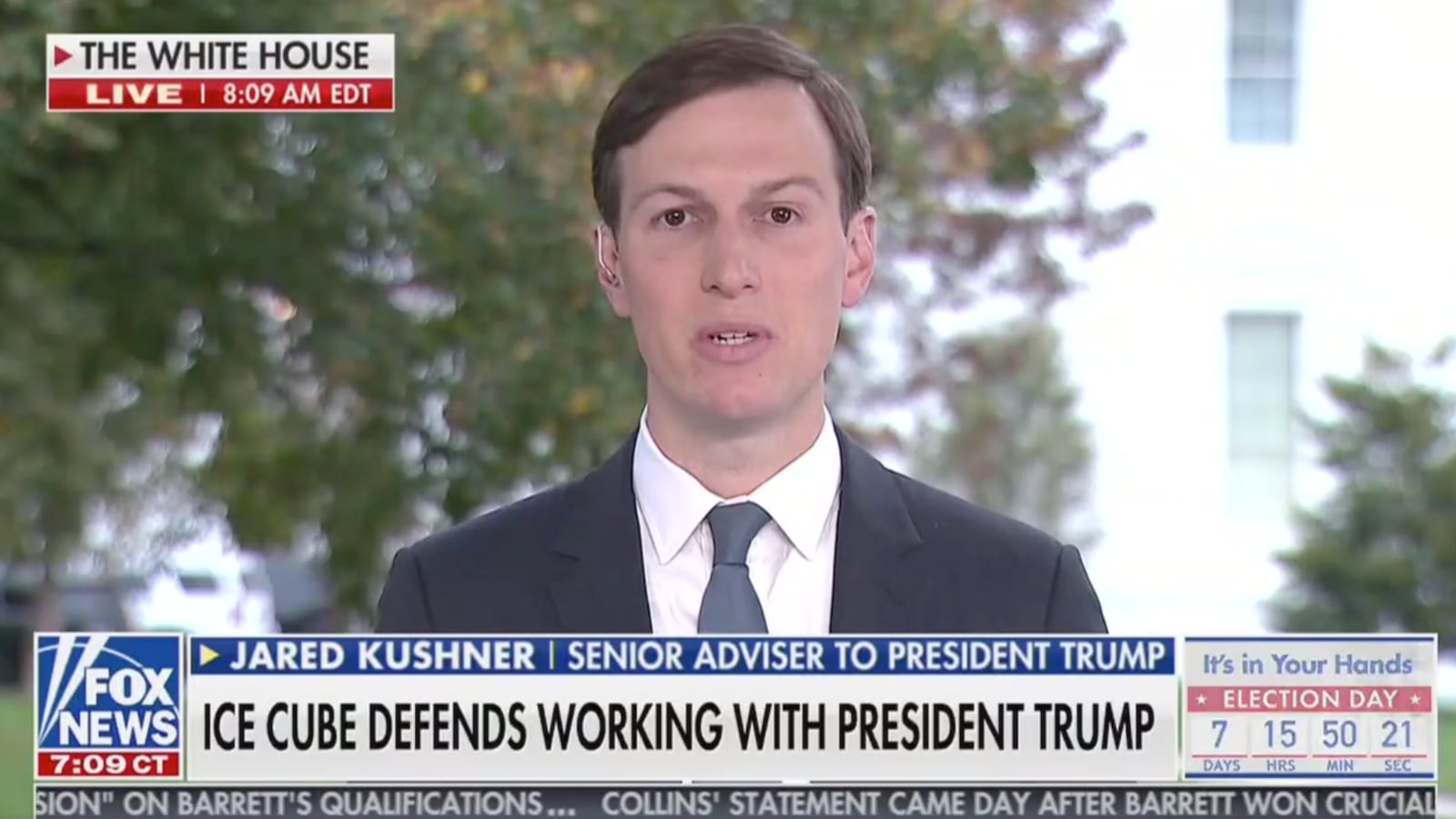Jared Kushner actually just said that Black Americans must “want to be successful” in order for President Donald Trump’s policies to help them.
The president’s son-in-law and senior adviser made the shocking claim during a Monday morning interview on Fox & Friends, seemingly implying that Black Americans don’t want to be successful.
“Again, one thing that we have seen in a lot of the Black community, which is mostly Democrat, is that President Trump’s policies are the policies that can help people break out of the problems that they’re complaining about. But he can’t want them to be successful more than that they want to be successful and what you’re seeing is groundswell support in the community because they are realizing all the different bad things media said about President Trump is not true,” Kushner said.
According to polling data released last week by FiveThirtyEight, Trump lost among Black American voters by about 82 percentage points in 2016—but has since seemingly closed the gap to about 71 percentage points ahead of this upcoming election. While Trump, who has frequently claimed that he has done the most for the Black community “since Abraham Lincoln,” may have shortened the vote gap, he faces considerable criticism over his response to nationwide protests over police brutality and racial injustice and a long history of insensitive comments, actions, and innuendos, and encouragement of white supremacists.
His inability to improve race relations has prompted an outcry from his opponent, former Vice President Joe Biden, who has called Trump a racist. During the final presidential debate last Thursday, Trump pushed back on the notion, claiming that despite the racial strife in America for the last four years, he is the “least racist person in this room.”
“I don’t know what to say,” Trump said. “I have criminal-justice reform done, and prison reform, and opportunities, I took care of Black colleges and universities. I don't know what to say. They could say anything. I mean, they could say anything. It makes me sad. I am the least racist person. I can’t even see the audience, because it is so dark, but I don’t care who’s in the audience, I’m the least racist in person in this room.”
On Monday, Kushner made the remark after he was asked to comment on rapper Ice Cube’s recent announcement he is an adviser for the Trump campaign’s “Platinum Plan” for Black America. The president’s son-in-law used the opportunity to critique celebrities and advocates over the movement that grew over the summer following the police killing of George Floyd in Minneapolis.
“You saw a lot of people who were just virtue-signaling,” Kushner said, before praising the late ’80s rapper for his solution-oriented approach. “They would go on Instagram and cry, or put a slogan on their jersey, or write something on a basketball court, and quite frankly that was doing more to polarize the country than it was to bring people forward.”
Recounting several conversations he said he has had with Ice Cube about how Trump can improve race relations in America, Kusher added, “There are some things we didn’t agree on, but there were a lot of things we did agree on. I think he helped make our plan better and we appreciated it.”
Kushner’s comments were immediately met with criticism on Monday from Democratic lawmakers and activists. Attorney Ben Crump—who represents the families of George Floyd and Breonna Taylor—slammed the president’s adviser via Twitter for implying Black people “are lazy complainers who don’t want to be successful.”
“This blatant DISRESPECT shows he has NO understanding of the Black community and its challenges that have spanned centuries. You can’t ‘fix’ these problems from this level of ego,” Crump wrote.
But in a statement to Bloomberg, White House Press Secretary Kayleigh McEnany slammed “internet trolls” for taking Kushner’s comments out of context.
“It’s disgusting to see internet trolls taking Senior Adviser Jared Kushner out of context as they try to distract from President Trump’s undeniable record of accomplishment for the Black community,” McEnany said, before citing criminal-justice reform.







